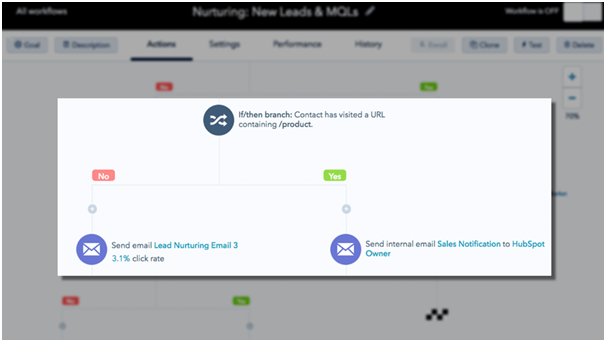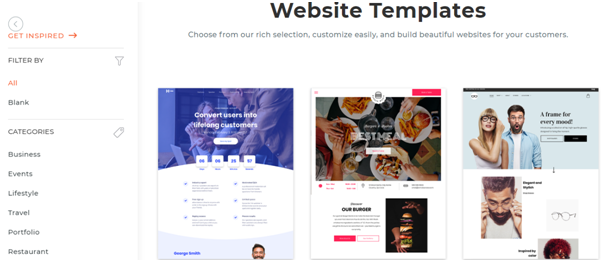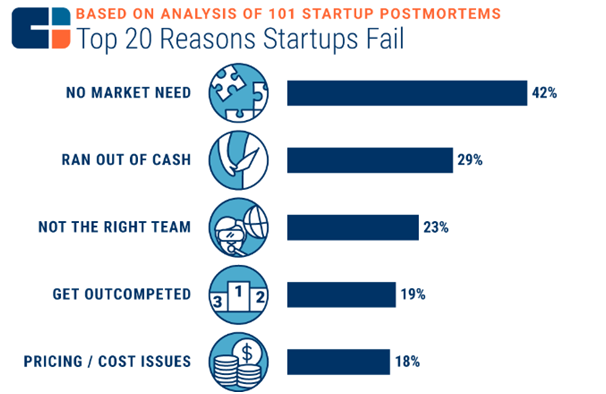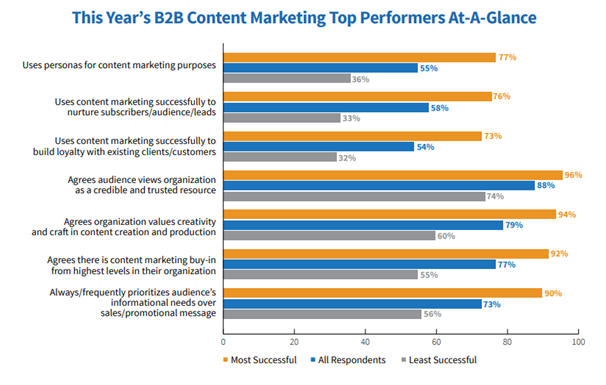When it comes to agencies, scalability is a touchy topic.
Businesses may be able to grow into brands, but that’s not always possible for a professional service firm because of the agency model.
So once they’ve hit the ceiling, some agencies may become bloated rather than growing into a much bigger brand.
You will need more people to effectively meet the growing demands of your agency.
You will need hiring managers to effectively recruit the most capable candidates.
This will also call for a new hiring and employee onboarding process since your existing one may no longer work for large-scale hiring systems.
And these are just a few of the challenges you’ll have to prepare for, not to mention the growing pains that come with scaling your business.
You may struggle with high employee turnover rates and several other costly mistakes.
Eventually, many agencies will sink because they are not prepared or capable of handling growth. But that isn’t always the case.
As long as you follow the right steps and are prepared to scale your business, even the smallest agency can grow into a reputable brand.
Read on to discover the essential steps you’ll need to follow when scaling your small agency into a brand.
Step 1: Optimize Your Process & Workflow
This is where a lot of agencies get held back.
While trying to scale their business, they often fail to address the most important step of optimizing their existing processes.
This can be a costly mistake as some small agencies still make do with developing and altering their workflow as they go.
And that’s no longer going to suffice for a business that’s scaling up. You could end up with a disorganized system where you often fail to meet deadlines and miss project deliverables.
So you should start by optimizing your existing processes and workflows for efficiency. Come up with a defined process and workflow for completing your projects and achieving campaign-specific goals.
Outline every step of your process right from acquisition and onboarding to campaign tracking. The goal is to make them trackable and repeatable so you don’t have to build a whole new process every time.
You can:
- Break down each campaign or project into deliverables.
- Further break those down into a list of tasks.
This makes it easier for each team member to stay on track with their specific tasks and fulfill their responsibilities.
Use workflow tools like HubSpot Marketing Automation to create and visualize workflows with defined goals.
You can even automate repetitive tasks like sending out follow-up emails and scoring leads.

Step 2: Scale Your Service Offering
Scaling your service offering is another crucial step in the process of scaling your small agency into a brand.
Mostly, this would involve turning into a full-service professional firm rather than an agency that offers niche services.
This doesn’t mean you should be expanding to offer services that are completely unrelated to your industry.
It just means you’ll be providing services that complement each other rather than having your clients go to multiple agencies for a single campaign. This saves them a lot of time, effort, and resources as they can get everything done in one place.
You can even start building websites and landing pages for your clients, in addition to developing their digital marketing campaigns.
You’ll be able to execute onsite conversion rate optimization tactics over time, along with the usual digital marketing strategy, as part of your monthly deliverables.
You won’t even have to learn how to design a website from scratch if you invest in the right tools.
For example, Duda is an excellent solution for teams that want to build attractive, fast-loading websites and progressive web apps with maximum efficiency.

It offers hundreds of pre-designed website templates that you can easily customize using the drag-and-drop interface.
Entire sections of pages can be saved to libraries for later repurposing, and they can be assigned to team members on site mockups, which also support commenting threads with clients.
Step 3: Develop Great Relationships
A brand is a brand because of how people perceive it, which distinguishes it from companies that sell the same products. This perception could be based on the experiences they’ve had when interacting with the company.
So in order to scale your small agency into a brand, you need to create a brand perception that will distinguish you from other agencies. For this, it’s crucial that you develop great relationships with your clients.
But don’t just stop at boosting your brand-client relationships. You should also build and strengthen your relationships with peers, industry experts, and other complementary brands.
There are tons of ways to develop great relationships for your brand. In the case of industry experts and peers, you could:
- Connect with them on social media.
- Interact with their content.
- Ask them valid questions.
- Interview them.
In the case of complementary brands, you could:
- Feature them in your content.
- Interview their leadership.
- Review their products.
You could even create content demonstrating how their product features complement yours.
For PPC companies like KlientBoost, great relationships played a major role in scaling their agency. They sponsored a “Taco Day” during CRO Day back in 2015 and invited influential leaders in the industry. This helped them develop valuable industry connections.
They then began co-producing content with relevant brands that are non-competitors. Within just a few months, they were generating $50,000 in monthly recurring revenue.
This proves just how valuable relationships can be to scale your small agency into a brand.
Step 4: Expand Your Team
When scaling your agency, you will naturally need more people, as discussed in the introduction.
As your agency grows bigger, new responsibilities will pop up and existing roles will become more demanding. You will need new people to handle these responsibilities and fulfill these demands.
That said, hiring new people and expanding your team is one of the biggest challenges for a growing agency. It can be a costly challenge because the team you work with can significantly affect your scalability.
In fact, a study by CB Insights found that 23% of startups fail because they don’t have the right team.

It’s no surprise that 42% of employers in an Indeed study worry they won’t be able to find the kind of talent they need. Working with a third-party recruiter or hiring an in-house one can solve this problem.
If you hand over the responsibility of talent acquisition, you’ll have more time to focus on other aspects of the operation. Plus, an expert recruiter will have an easier time narrowing down on the most viable candidates for different job roles.
41% of companies also have the hardest time filling their entry-level positions. This likely isn’t because of the lack of talent available, but because companies are trying to cut training costs. So they put additional requirements that applicants have to fulfill to be considered for the job.
When you do this, qualified and talented individuals may be restricted from applying. This means you’ll have a much harder time finding qualified applicants and expanding your team. And you’ll likely miss out on individuals who would’ve made an excellent addition to your team.
So it’s crucial that you develop a proper onboarding and training process for new recruits.
Don’t hesitate to invest some time and money on training. This will help you strengthen your team with highly-qualified professionals who received proper training to do their jobs.
Step 5: Content Marketing
To evolve into a brand, your agency needs to become a trusted resource for industry-related information.
People should be able to seek and trust your opinions and ideas within the relevant industry. Otherwise, you’ll just be another agency that provides some kind of professional service.
For that to happen, you will need an advanced content marketing strategy.

According to a Content Marketing Institute study:
- 96% of the most successful B2B content marketers say their audience views them as a credible and trusted resource.
- 76% of the most successful use content marketing to nurture their leads, audience, and subscribers.
- 73% also use it to successfully build loyalty with their existing clients and customers.
The key to this success lies in providing content that fulfills the informational needs of the audience.
This is much more effective than creating tons of content that blatantly promote your products or services.
In fact, 90% of the most successful B2B content marketers prioritize the informational needs of their audience over the company’s sales or promotional message.
So you should create a content marketing strategy that focuses on developing high-quality content that has some value to your target audience.
You could conduct surveys via social media or on your website to find out what your audience wants to see from you.
Additionally, you could also use content research platforms like BuzzSumo to identify trending topics and popular content in your niche. This will help you come up with content ideas that improve on the most successful pieces of content.
If at this stage, you don’t have the resources to create content in-house, you could also use content outsourcing platforms.
MixBloom is an excellent platform if you need help creating social media content. You could also look for highly-qualified content developers and copywriters via platforms like ClearVoice.
Final Thoughts
These are some of the most essential steps that will help you scale your small agency into a brand.
A lot of preparation is required and organization is key if you want to succeed. So use these tips to stay on track and successfully turn your agency into a brand of its own.
More Resources:
Image Credits
All screenshots taken by author, May 2019